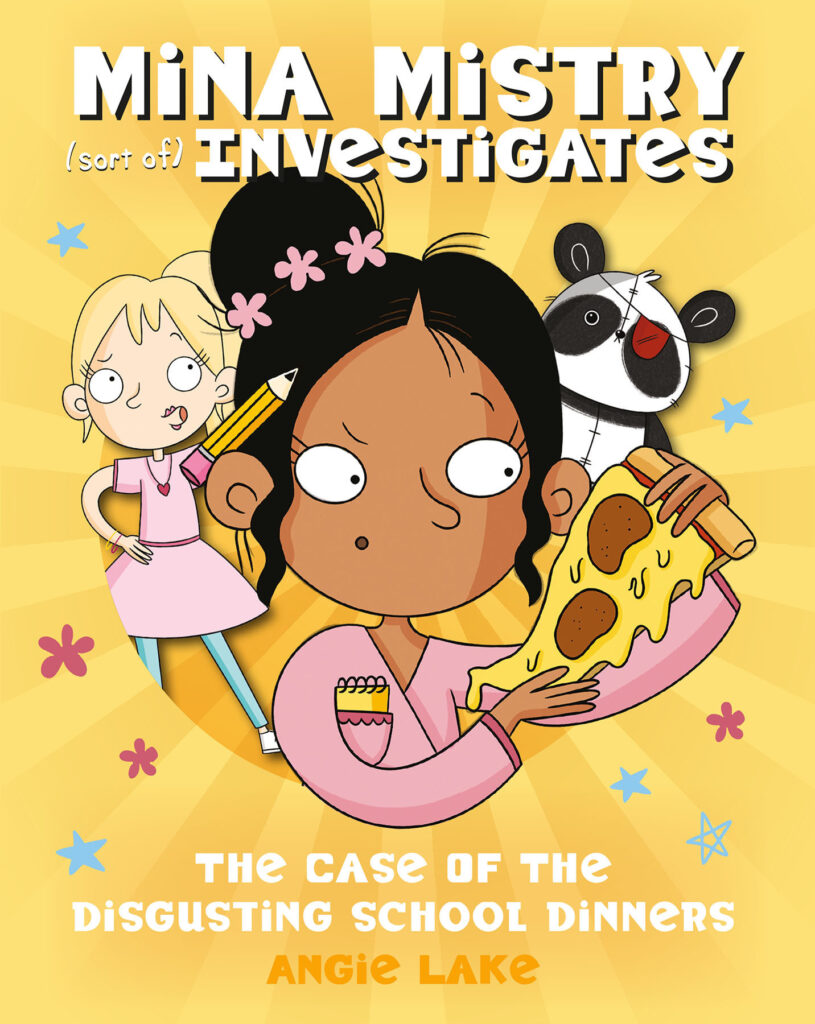- A bit about you.
After moving around chasing the rock n’ roll lifestyle, my partner and I decided to settle with our toddler on the Spanish Costa Blanca, which is where I grew up. He’s a musician and I’m a writer, so we knew that life was going to be challenging. We decided that we might as well live somewhere pretty as, chances are we’ll never be able to afford a holiday.
- What you have written, past and present.
I started out with a short stint doing reviews and interviews for a Heavy Metal magazine. Over the years I’ve written articles and worked on translations and subtitles for the music industry.
My Dad and I collaborated on two series of children’s books The Diaries of Robin’s Toys and The Diaries of Robin’s Travels, published by Sweet Cherry Publishing.
I then went on to write the middle-grade book series Danny Dingle’s Fantastic Finds, and its spin-off series Mina Mistry Investigates, also published by Sweet Cherry.
I’m currently working on the plot for another children’s series.
Aside from that I have some unpublished work including a trilogy of novels and a series of children’s books for adults (also comedy).
- What you are promoting now.
Sweet Cherry Publishing are launching Mina Mistry Investigates this September. It’s a series about a witty schoolgirl detective and her half-hearted attempt to fit in with the kids around her as she puts her energy into solving mysteries while maintaining her secret identity.
- A bit about your process of writing.
I went through a very draining phase of writing for up to 22 hours a day for two months on the trot, but once my hair grew back I decided to keep to a less lethal schedule.
I write 5 or 6 days a week, always in the mornings unless I’m up against a deadline.
I have notebooks where I jot down random ideas, then when I “go into production” with a pitch or a series I write everything on a project board to help me visualise the emerging universe.
I take time out to clear my head and come up with ideas: I run or hike most mornings before work.
- Do you plan or just write?
I think that if I didn’t plan everything with painful intricacy, my brain would disintegrate. I find that I’m more creative when I’m breaking rules; I impose my own strict rules on myself, then break them and feel awful about it. A typical work day should include an hour and a half of coming up with ideas, about an hour of planning and adapting plots and storylines and three to four hours of writing. There are also meetings, editing and other tasks. Usually my day will get hijacked by just one task though, and then I’ll panic.
- What about word count?
My current projects have a set word count, so I divide that into the time allowance I have for each project and then struggle to meet my own deadline.
- How do you do your structure?
Very rigidly. I’ll come up with characters and a concept for a series and I write as if I were working on episodes for a cartoon. I come up with a plot and a subplot for each episode, and then I divide that into eight scenes. I write a draft for each scene and then work towards the ending. I never drift; I always know how a story is going to end before I start writing it.
- What do you find hard about writing?
The financial uncertainty and having no one but myself to blame for it; that’s the problem with being your own employee and manager – what are the chances that you’re going to be good at both of those things?
- What do you love about writing?
That it comes more naturally to me than resurfacing roads or working in a call centre. Also that all the worlds and characters you create give you somewhere to escape to when you’re stuck resurfacing a road or working in a call centre.
- Advice for other writers.
In order to get anywhere you’ll have to take it seriously, but while you’re doing this you shouldn’t forget how ridiculous writers who take themselves seriously seem to the rest of the world. Embrace this and start collecting hats.
Mina Mistry Investigates: the Case of the Missing School Dinners will be published by Sweet Cherry Publishing on 10 September.



